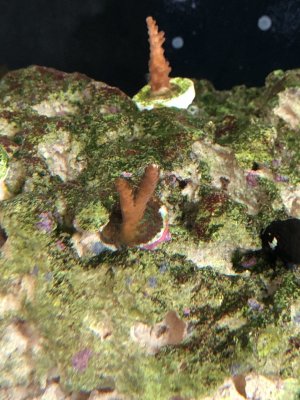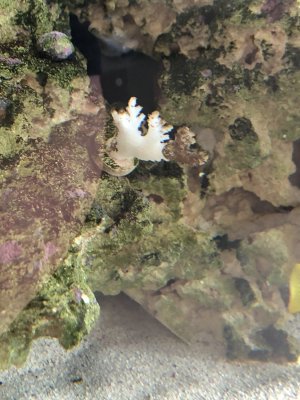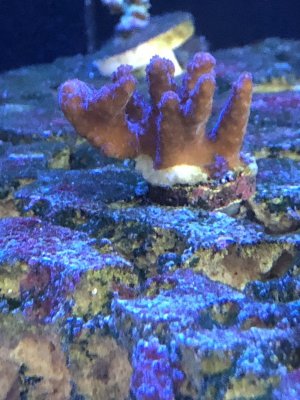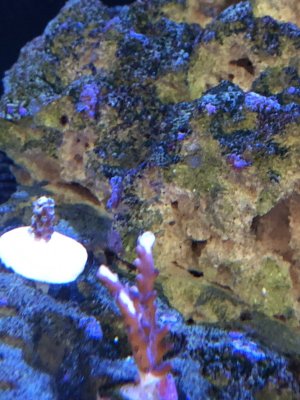- Joined
- May 17, 2020
- Messages
- 165
- Reaction score
- 134
Hey everyone I just want to see if anyone has any input as to why 75% of my acros are suddenly dying in my 66 gallon. This all started after I did a 15% water change two weeks ago because of high phosphates due to my dino battle. I added a single tablespoon of rowaphos GFO (I underdose because I don't want sharp fluctuations). Within two days, my strawberry shortcake RTN overnight and all the tissue was gone. I added carbon and checked all my parameters and everything wasn't too bad. Alk creeped up from 9 to 9.5 suddenly as consumption suddenly stopped but that isn't too much. Ca 420, Mg 1380. Phos 0.45 (still high). Same salt, same RO water source. No massive temp fluctuations. Salinity was just slightly higher at 1.027 but slowly brought it back down. Other corals showing signs of STN at the base and tips. I stopped dosing alk. I'm letting phos and alk slowly go down. Alk steadily came down to 8.8 over a week. Two weeks later, I added more carbon (seachem matrix).
This morning, my blue ultra acro RTN'ed completely overnight. This morning, my alk is 8.8, Ca 420, Mg 1380, phos 0.27, nitrates 10. I'm not sure what else to do as the majority of my acros are slowly dying. Everything started going south after the water change. Anyone have ideas? I know stability is the key but I didn't do anything too rapidly. I'm at a loss right now and feeling very defeated.




This morning, my blue ultra acro RTN'ed completely overnight. This morning, my alk is 8.8, Ca 420, Mg 1380, phos 0.27, nitrates 10. I'm not sure what else to do as the majority of my acros are slowly dying. Everything started going south after the water change. Anyone have ideas? I know stability is the key but I didn't do anything too rapidly. I'm at a loss right now and feeling very defeated.






















